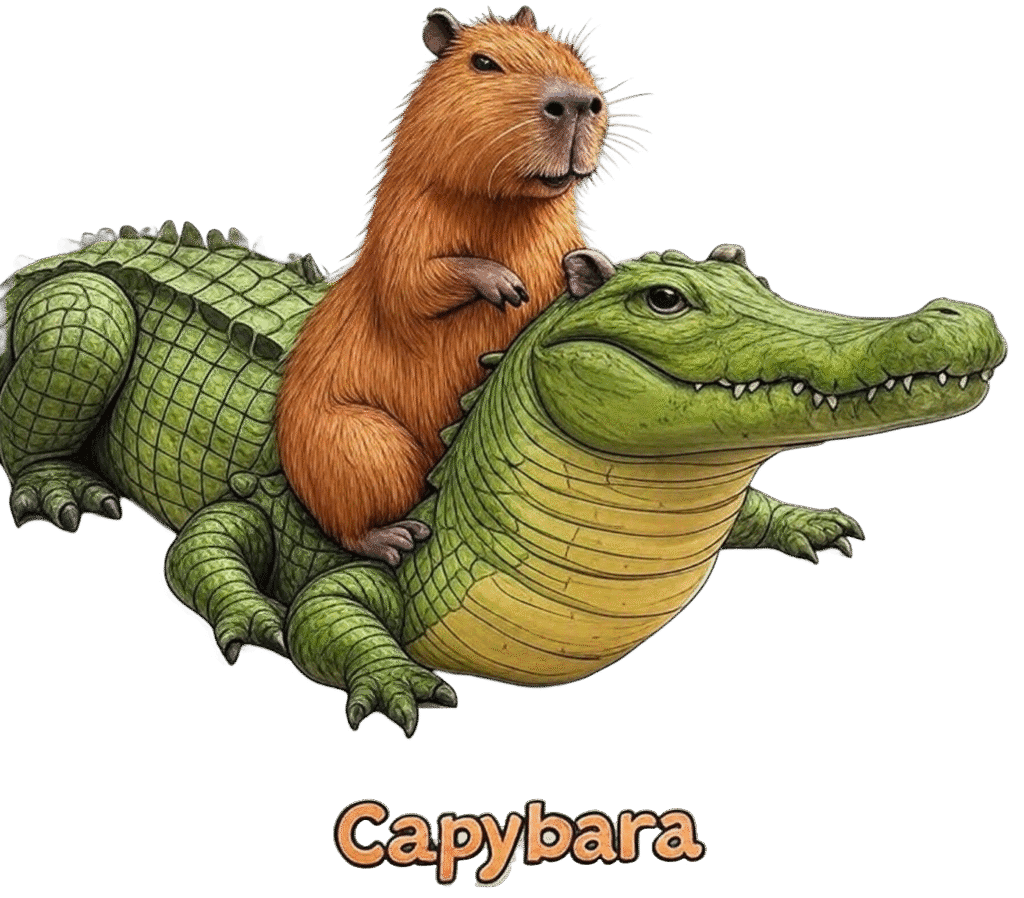Capybara Cost and price Estimates as a Pet
Here are the Estimated Costs for Pet Capybara Ownership (USA)
The cost of owning a capybara can be broken down into three main categories: initial setup, purchase price, and recurring expenses. Keep in mind that capybaras are social animals, and these estimates assume you will be purchasing and caring for a minimum of two (Since capybaras are very social animals that always need a companion).
Initial Setup Costs
These are the one-time expenses for getting your home ready for your new pets. This is where most of the upfront cost comes from, and it’s a non-negotiable investment for the well-being of the capybaras.- Enclosure and Habitat: The habitat for a pair of capybaras needs to be substantial. You’ll need a large, secure, and fenced-in outdoor area with a minimum of 400 square feet, as well as a heated shelter for cold weather. Most of this cost comes from installing a large, clean, and safe water source.
- Low-End Estimate: $5,000 – $7,000 (This might involve a prefabricated pool, basic fencing, and a simple, insulated dog house-style shelter.)
- High-End Estimate: $10,000 – $20,000+ (This could include a custom-built, in-ground pool with a filtration system, professional-grade fencing, and a fully climate-controlled shelter.)
- Veterinary and Licensing Fees:
- Initial Vet Visit: $100 – $300 (This is for a health checkup and to build a relationship with a qualified exotic vet.)
- Spaying/Neutering: $200 – $500 per animal (This is highly recommended to manage behavior and prevent unwanted litters.)
- Permit and License Fees: $50 – $500 (This is a one-time or annual fee that varies dramatically by state and county. Some jurisdictions may have no fee, while others can be quite expensive.)
Purchase Price
- Capybara(s): As discussed, a single capybara from a reputable US breeder costs between $1,500 and $5,000+. You must purchase at least two, so the total cost is at least $3,000 – $10,000+.
Recurring Expenses (Per Year)
These costs are what you can expect to pay annually to care for your capybaras properly.- Food: Capybaras eat a lot. Their diet consists of hay, grass, and a vitamin C supplement.
- Estimate: $50 – $100 per month, which comes to an annual cost of $600 – $1,200.
- Supplies:
- Bedding/Enrichment: You’ll need to provide hay, straw, or mulch for their bedding and for them to chew on, as well as safe chew toys.
- Vet Care (Annual): This includes a regular checkup and dental care.
- Estimate: $150 – $300 per year.
- Utilities (for a cold climate): If you live in a colder climate, you will need to heat their shelter and their pool during the winter, which can be a substantial expense. This may not apply to every owner but should be considered.
- Estimate: $500 – $1,500+ per year.
Total Estimated Annual Cost
- Initial Year (one-time costs + recurring costs):
- Low-End Estimate: $8,500 ($5,000 enclosure + $300 vet/license + $3,000 for two capybaras + $800 in recurring expenses)
- High-End Estimate: $32,000+ ($20,000+ enclosure + $800 vet/license + $10,000 for two capybaras + $1,200 in recurring expenses)
- Subsequent Years (recurring costs only):
- Low-End Estimate: $800 per year (for food, supplies, and basic vet care)
- High-End Estimate: $3,000 per year (if you have to factor in heated pools, extensive food, and a more robust supply budget)
Summary
The initial cost to acquire and set up a proper home for two capybaras in the USA can range from a minimum of $8,500 to over $32,000. The annual costs to care for them after the first year can be anywhere from $800 to $3,000+. This does not include the cost of emergency vet care, which can be thousands of dollars.Page Last Updated: August 8, 2025
Everything You need to know About the Capybara, The World's Chillest Rodent
Capybara Fact Sheet
Capybara Costs
Capybara Pets
Capybara Viral Videos
